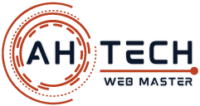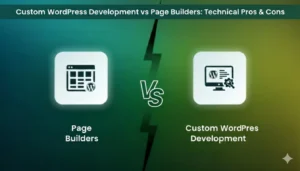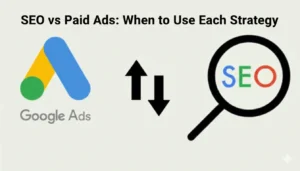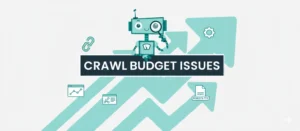The Basics of Search Engine Optimization SEO
What is SEO?
SEO enhances website visibility on search engines, attracting organic traffic and improving online presence.
How Search Engines Work
Search engines use algorithms to index websites and display relevant results based on user queries.
Key Components of SEO:
On-Page SEO – Optimize content, meta tags, URLs, and site structure.
Off-Page SEO – Build quality backlinks and engage in social media marketing.
Technical SEO – Optimize site speed, fix broken links, use XML sitemaps, and ensure mobile-friendliness.
Why SEO Matters for Web Developers
As a web developer, understanding and implementing Search Engine Optimization (SEO) is crucial for driving organic traffic and improving website ranking on search engines. By optimizing websites for relevant keywords and search terms, developers can enhance user experience and gain a competitive advantage in the digital landscape. SEO ensures higher search engine rankings, leading to increased visibility and more clicks from users. Additionally, a well-optimized site improves overall user experience through easy navigation, quick loading times, and valuable content, making it more appealing to visitors. In the highly competitive online world, integrating SEO best practices into web development is essential for creating impactful websites that stand out and perform exceptionally well.
SEO Techniques for Web Developers
A. Keyword Research
Identifying Relevant Keywords – Effective keyword research involves identifying the most relevant keywords and phrases that align with your website’s content and your target audience’s search intent.
Utilizing Long-Tail Keywords – Long-tail keywords are more specific and have lower competition, making them valuable for targeting niche audiences and driving quality traffic.
Keyword Tools for Developers – Utilize keyword research tools like Google Keyword Planner, SEMrush, or Ahrefs to find valuable keywords and analyze their search volume and competition.
B. On-Page SEO Best Practices
Optimizing Meta Tags – Craft compelling title tags and meta descriptions that accurately reflect the content of each page and include relevant keywords.
Creating High-Quality and Engaging Content – Develop valuable, original, and engaging content that addresses users’ needs and encourages longer on-page dwell time.
Utilizing Proper Heading Tags (H1, H2, H3) – Use heading tags to structure your content logically, making it easier for both users and search engines to understand the hierarchy of information.
Optimizing URL Structure – Create clean and descriptive URLs that include target keywords and provide a clear indication of the page’s content.
Image Optimization – Optimize images by compressing their size, using descriptive alt text, and ensuring they enhance the overall user experience.
C. Technical SEO Guidelines
Website Speed and Performance – Optimize website loading times by compressing images, leveraging browser caching, and choosing a reliable hosting provider.
Mobile-Friendly Design – Ensure your website is responsive and provides an excellent user experience on various devices, including smartphones and tablets.
Structured Data Markup – Implement structured data markup (e.g., Schema.org) to help search engines understand your content better and display rich snippets in search results.
XML Sitemap and Robots.txt – Create and submit an XML sitemap to search engines to facilitate the crawling and indexing of your website. Use a robots.txt file to control which pages search engines should or shouldn’t crawl.
Canonical URLs – Implement canonical tags to avoid duplicate content issues and indicate the preferred version of a page to search engines.
D. Off-Page SEO Strategies
Building High-Quality Backlinks – Focus on acquiring relevant and authoritative backlinks from reputable websites to boost your site’s authority and search engine rankings.
Social Media Engagement and Shares – Engage with your audience on social media platforms and encourage sharing of your content to increase visibility and drive traffic.
Guest Posting and Content Outreach – Collaborate with other websites or blogs through guest posting and content outreach to reach new audiences and build relationships within your industry.
Tools and Resources for SEO-Oriented Web Developers
A. SEO Plugins and Extensions for Web Browsers
MozBar – A popular SEO toolbar that provides instant access to critical metrics like domain authority, page authority, and keyword difficulty, allowing developers to analyze websites on the go.
SEOquake – A browser extension that offers comprehensive SEO data for any webpage, including organic search metrics, keyword density analysis, and internal/external link data.
B. SEO Analysis and Audit Tools
Google Search Console – A free tool from Google that helps web developers monitor website performance, identify indexing issues, and optimize the site’s visibility on search engines.
Screaming Frog – A powerful website crawler that allows developers to conduct in-depth SEO audits, analyze metadata, identify broken links, and evaluate page titles and descriptions.
C. Keyword Research Tools
Google Keyword Planner – A staple for keyword research, providing insights into search volume, competition, and new keyword ideas based on relevant terms.
SEMrush – A comprehensive SEO tool that offers keyword analysis, competition research, and domain-level insights to help developers refine their keyword strategies.
D. Competitor Analysis Tools
Ahrefs – This tool enables web developers to explore competitor backlinks, organic search rankings, and top-performing content, helping them understand the competition and adapt their SEO approach.
SimilarWeb – An excellent resource for understanding competitors’ traffic sources, top referring websites, and audience interests, allowing developers to benchmark their site against industry peers.
Common SEO Mistakes to Avoid
Search Engine Optimization (SEO) is a crucial aspect of any successful online presence, but it’s easy to make mistakes that can harm your website’s rankings and visibility. Here are some common SEO mistakes to avoid:
A. Keyword Stuffing
Stuffing your content with excessive keywords in an attempt to manipulate search engine rankings is a big no-no. Not only does it make your content awkward and unreadable for users, but search engines also penalize websites for keyword stuffing.
B. Duplicate Content:
Publishing duplicate content across multiple pages or websites can lead to confusion for search engines, affecting your website’s rankings. Aim for original and unique content to provide value to your users and avoid duplicate content issues.
C. Ignoring Mobile-Friendly Design:
With mobile devices driving a significant portion of internet traffic, neglecting mobile-friendly design can be detrimental to your website’s performance. Ensure your site is responsive and adapts seamlessly to various screen sizes for a better user experience and improved search rankings.
D. Neglecting Website Performance:
Slow-loading websites frustrate users and impact SEO. Optimize your website’s performance by compressing images, leveraging browser caching, and choosing a reliable hosting provider to ensure fast loading times.
E. Low-Quality Backlinks:
Building low-quality backlinks from irrelevant or spammy websites can harm your website’s credibility and search rankings. Focus on acquiring high-quality, relevant backlinks from authoritative sources to boost your site’s authority and reputation.
Measuring SEO Success
Measuring SEO success is crucial in the dynamic digital landscape, providing valuable insights into the effectiveness of your strategies and guiding continuous improvement. By focusing on key performance indicators (KPIs), harnessing the power of Google Analytics and Search Console, and tracking website rankings and organic traffic, you can gain a comprehensive understanding of your website’s performance and the impact of your SEO efforts. Monitor organic traffic to gauge visibility on search engines, track keyword rankings to assess progress, and analyze click-through rates and conversion rates to evaluate user engagement and content relevance. Leveraging these tools and data-driven insights enables you to optimize your SEO approach, enhance search visibility, and achieve lasting growth in the fiercely competitive online world.
Staying Updated with SEO Trends
Staying updated with SEO trends is crucial in the ever-changing landscape of Search Engine Optimization. As search engines constantly evolve their algorithms, staying informed about the latest trends and best practices ensures that your SEO strategies remain effective and relevant. Following industry experts and reputable SEO blogs provides valuable insights, practical tips, and updates on algorithm changes. Additionally, attending SEO conferences and webinars allows you to connect with professionals, learn from experienced speakers, and discover emerging tactics. By keeping up with SEO trends, you can adapt your strategies, seize new opportunities, and maintain a competitive edge in the dynamic digital world. Embracing continuous learning in SEO empowers you to optimize your website and achieve success in the ever-evolving realm of online visibility.




